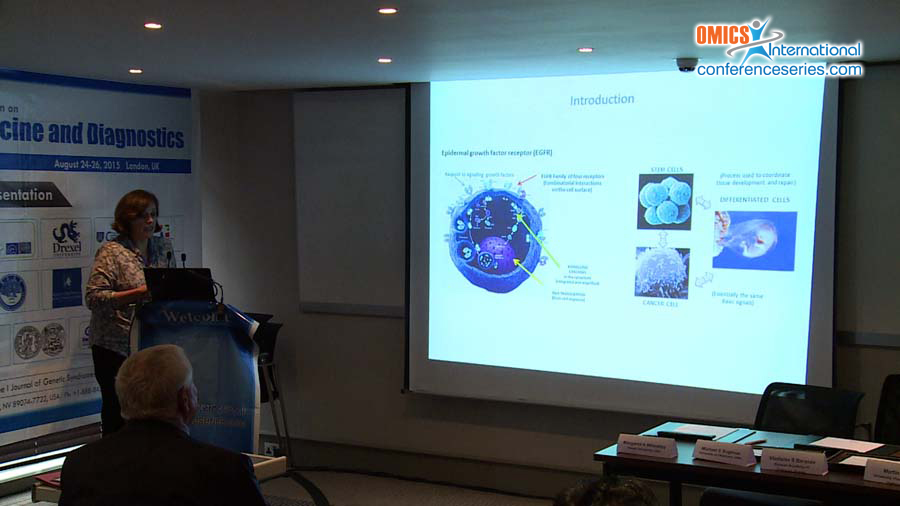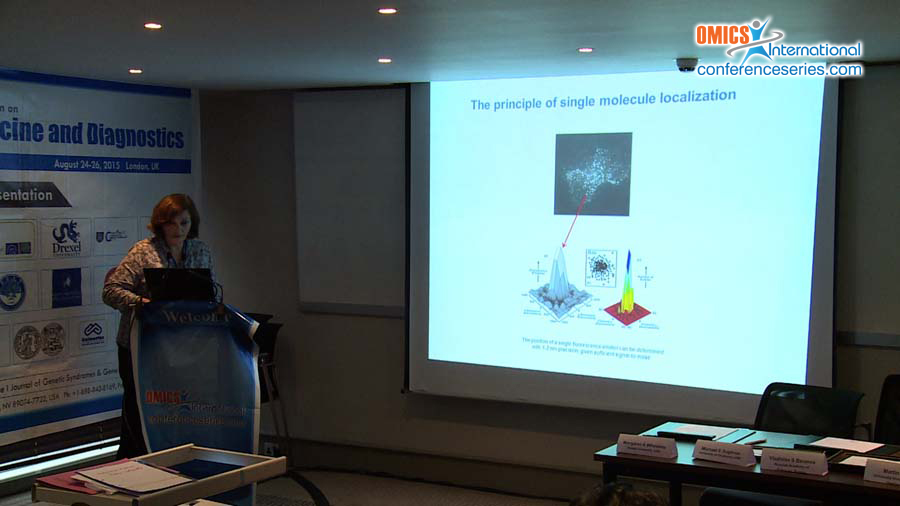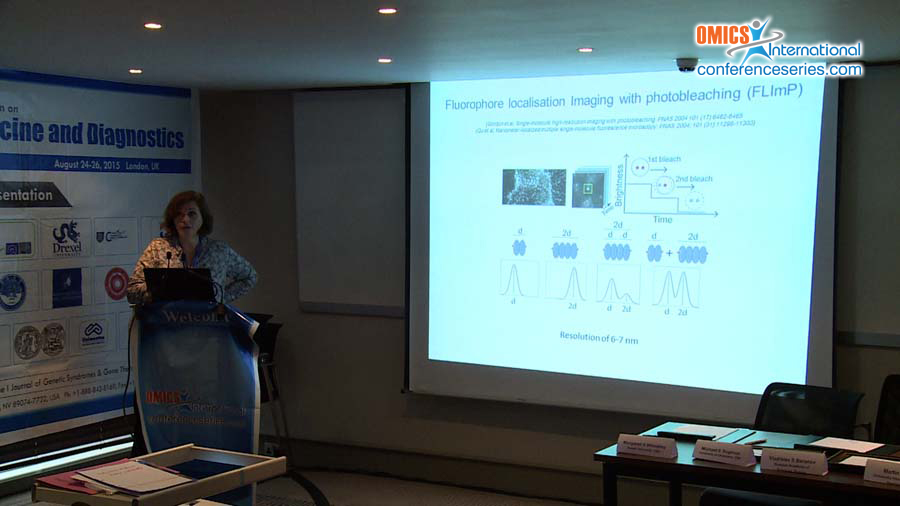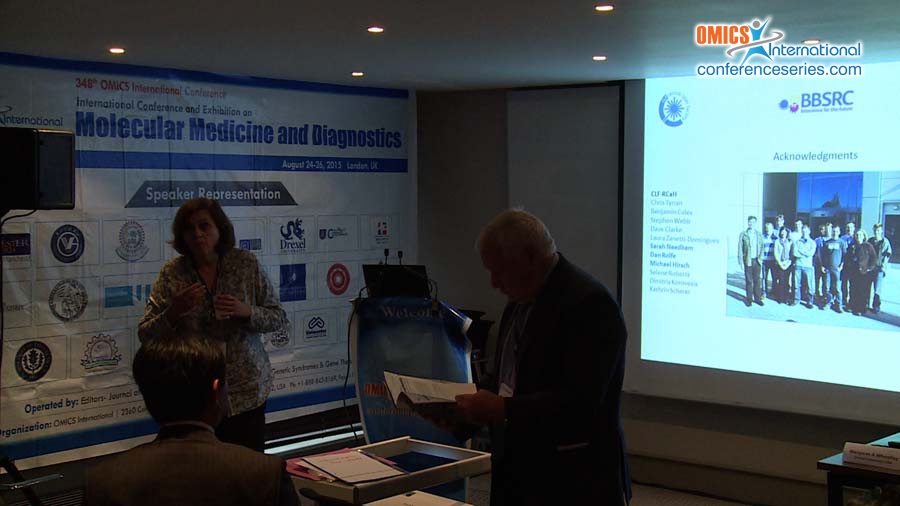
Marisa Martin-Fernandez
Rutherford Appleton Laboratory, UK
Title: Receptor structural analysis by single molecule nanoscopy: Potential for patient stratification and drug discovery
Biography
Biography: Marisa Martin-Fernandez
Abstract
Many new targeted therapies are currently in use, undergoing trials, or being developed as alternatives to conventional chemotherapy. The majority of these treatments are aimed at modifying the action of receptors located in the plasma membrane and involved in cell signalling, as mutations or overexpression of these receptors is linked with the development of a significant number of human cancers. However, only 30-70% of the patients respond positively to any particular type of drug. Moreover, the majority of patients undergoing targeted cancer therapy develop drug resistance, resulting in a relapse. Stratified medicine is an emerging field where the cancer patients are classified based on the presence or absence of underlying mutations to prescribe personalised treatment. We have developed a novel super-resolution microscopy based technology, and used this to show that mutations result in changes in the structure of clinically relevant protein complexes in cells, and that these structural changes can be altered or reversed through the application of targeted drugs. This should allow stratification of the patients based on variations in protein complex structure rather than the underlying mutations. This approach would provide targeted treatment of cancer patients as well as continuing assessment to monitor any development of drug resistance. Also, by providing a direct measurement of the effect of drugs on the structure of receptor complexes, this technique has the potential to rapidly identify effective new therapeutics.




